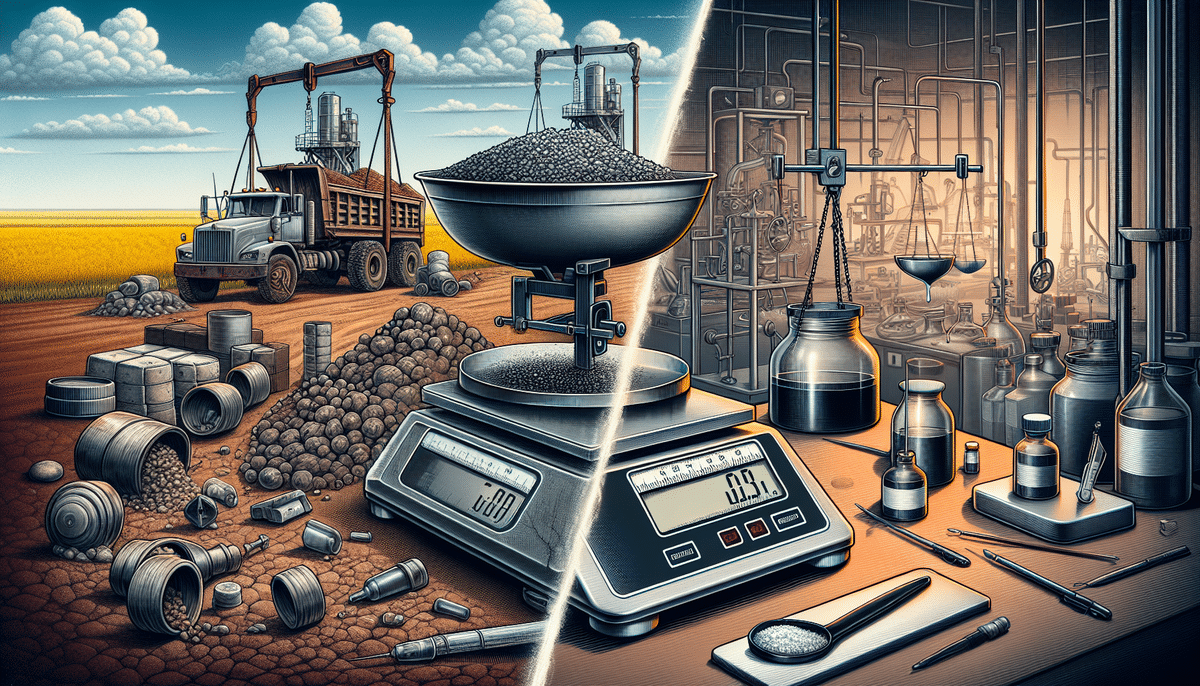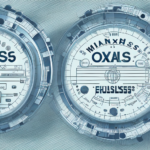Cardinal Scale vs Ohaus D51XW: Comprehensive SEO-Optimized Comparison
When selecting industrial weighing scales, Cardinal Scale and Ohaus D51XW emerge as two of the most reputable brands. This in-depth comparison examines their features, advantages, disadvantages, accuracy, design quality, and pricing to help you determine which scale best suits your business needs.
Overview of Cardinal Scale and Ohaus D51XW
Cardinal Scale has been a stalwart in the weighing industry for nearly seven decades, providing a diverse range of products including load cells, indicators, bench scales, floor scales, and truck scales. Their solutions cater to industries such as agriculture, food processing, petrochemical, and pharmaceuticals.
Conversely, Ohaus D51XW has gained prominence for its advanced technology and innovative design. Specializing in laboratory weighing instruments, analytical balances, and precision scales, Ohaus D51XW is favored in environments where precision is critical.
Cardinal Scale is celebrated for its durable and reliable solutions capable of withstanding harsh industrial environments. For instance, their truck scales are engineered to manage heavy loads and extreme weather conditions, offering customized solutions to meet unique customer requirements.
On the other hand, Ohaus D51XW is recognized for its user-friendly interfaces and advanced features. Their analytical balances come equipped with touchscreen displays and built-in applications that simplify complex weighing tasks. Additionally, connectivity options like Bluetooth and Wi-Fi enable seamless data transfer to other devices or cloud-based platforms.
Application Across Various Industries
Both Cardinal Scale and Ohaus D51XW cater to distinct industries with specialized applications:
- Cardinal Scale:
- Agriculture: Weighing bulk products such as grains and animal feed.
- Transportation and Logistics: Utilizing truck scales and floor scales.
- Construction: Employing crane scales for heavy equipment and material weighing.
- Waste Management: Weighing garbage trucks to measure waste collection.
- Ohaus D51XW:
- Laboratories and Research Facilities: Precise measurements for small samples in chemical, biotechnology, and medical research labs.
- Jewelry and Pharmaceuticals: Utilizing precision scales for accurate measurements.
- Food Industry: Implementing portion control scales in restaurants and commercial kitchens.
- Retail: Using counting scales for inventory management of small items like screws and bolts.
Key Features of Cardinal Scale and Ohaus D51XW
Cardinal Scale Features
- Durable construction with materials like stainless steel.
- Long battery life for extended operations.
- Easy-to-read LCD displays.
- Compatibility with various peripherals.
- Weight capacities ranging from 10 lbs to 120,000 lbs.
- Resolution up to 10,000 divisions.
Ohaus D51XW Features
- Fast stabilization times for quick measurements.
- Multiple weighing units for versatile applications.
- Customizable settings to meet specific user needs.
- Robust built-in software for data management.
- Analytical balances with a resolution of up to 0.0001 mg.
- Precision scales capable of weighing up to 620 g.
Both brands ensure exceptional accuracy and precision. Cardinal Scale's stainless steel load cells resist corrosion and wear, while Ohaus D51XW's analytical balances feature draft shields that protect against air currents and dust, maintaining measurement integrity. Additionally, both offer excellent customer support and technical assistance.
Advantages and Disadvantages
Cardinal Scale
- Advantages:
- Durable and reliable construction.
- Cost-effective solutions.
- Easy to use and maintain.
- Portability for scales that can be moved easily.
- Disadvantages:
- Limited customization options.
- Lower accuracy levels compared to specialized precision scales.
- Slower response times in certain models.
Ohaus D51XW
- Advantages:
- High accuracy and precision.
- Advanced features like data storage and connectivity.
- User profiles for multiple operators.
- Disadvantages:
- Higher cost.
- Complex user interface may be challenging for beginners.
- Larger size and weight reduce portability.
Precision and Accuracy Comparison
Cardinal Scale delivers excellent precision suitable for industrial applications, with weighing accuracy ranging from 0.1% to 0.25%, depending on the model and capacity. However, environmental factors like temperature and humidity can slightly affect accuracy.
Ohaus D51XW excels in precision, particularly with analytical balances that achieve a resolution of up to 0.0001 mg, making them ideal for laboratory and research purposes. Their precision scales offer accuracies up to 0.01 g, suitable for small sample sizes.
Ohaus D51XW's analytical balances incorporate automatic temperature compensation, ensuring consistent accuracy even in fluctuating environmental conditions. Additionally, their built-in software facilitates efficient data management and analysis, which is crucial for research and laboratory settings.
Design and Build Quality
Both Cardinal Scale and Ohaus D51XW are engineered for durability and quality:
- Cardinal Scale:
- Robust designs with steel or concrete decks for enhanced durability.
- Engineered to last for decades in tough industrial environments.
- Ohaus D51XW:
- Sleek, modern designs with lightweight aluminum construction.
- Ease of movement and storage, though potentially less durable in extreme conditions.
Cardinal Scale offers a broader range of scale sizes and capacities, making them versatile for industries requiring various weighing solutions. In contrast, Ohaus D51XW provides a more focused range but emphasizes precision and modern aesthetics.
Price Comparison
Cardinal Scale products are generally more affordable, offering value in terms of durability and reliability:
- Truck scales and floor scales range from $2,500 to $20,000.
- Bench scales are priced between $100 and $1,000.
Ohaus D51XW tends to be pricier, reflecting their advanced precision and features:
- Analytical balances can cost up to $10,000.
- Precision scales range from $500 to $1,500.
While Ohaus D51XW's higher costs are justified by their precision and advanced capabilities, Cardinal Scale offers cost-effective solutions ideal for general industrial use.
Both brands provide customization options to meet specific customer needs. Cardinal Scale can tailor scales with different sizes, capacities, and materials, whereas Ohaus D51XW offers additional features like data logging, connectivity, and software integration. It's essential to evaluate your requirements and budget to make an informed decision.
Choosing the Right Weighing Scale for Your Business
Selecting between Cardinal Scale and Ohaus D51XW hinges on your specific business needs:
- Cardinal Scale is ideal for businesses seeking reliable, durable, and cost-effective scales for industrial applications. Their wide range of capacities and robust construction make them suitable for sectors like agriculture, transportation, and construction.
- Ohaus D51XW is best suited for laboratory and research environments where precision and advanced features are critical. Their analytical and precision scales offer unparalleled accuracy for scientific and specialized applications.
Consider factors such as capacity, size, connectivity, and data management features when making your choice. Cardinal Scale offers extensive options for varying capacities, while Ohaus D51XW provides superior precision and modern connectivity solutions.
Case Studies: Business Benefits from Cardinal Scale and Ohaus D51XW
Several businesses have reaped significant benefits from utilizing Cardinal Scale and Ohaus D51XW scales:
- Petrochemical Company: Selected Cardinal Scale's truck scales for their ruggedness and ability to handle hazardous materials, enhancing safety and operational efficiency.
- Medical Research University: Implemented Ohaus D51XW's precision scales in their analytical chemistry lab to achieve accurate measurements of small sample sizes, advancing research outcomes.
These case studies underscore the impact of selecting the right weighing scale on improving business processes and achieving desired outcomes.
Maintenance and Repair
Proper maintenance ensures the longevity and optimal performance of your weighing scales:
- Cardinal Scale:
- Regularly clean the steel decks and lubricate load cells.
- Perform routine calibration and zeroing.
- Schedule firmware updates to enhance software performance.
- Ohaus D51XW:
- Maintain the cleanliness of analytical balances and precision scales.
- Conduct regular calibration checks.
- Update firmware and software to ensure accurate data management.
If you encounter any issues, promptly contact customer support or a certified technician to address problems and perform necessary repairs.
Final Verdict: Which Weighing Scale is Right for Your Business?
Your choice between Cardinal Scale and Ohaus D51XW should align with your business's specific requirements:
- Choose Cardinal Scale if:
- You need a durable, reliable, and cost-effective scale for industrial applications.
- Your operations involve heavy-duty environments requiring robust equipment.
- Portability and a wide range of capacities are important for your business.
- Choose Ohaus D51XW if:
- You require high precision and accuracy for laboratory or research purposes.
- Advanced features like data management and connectivity are essential.
- Your applications demand specialized weighing solutions with modern interfaces.
Carefully assess your business needs, application environments, and budget to make an informed decision between these two leading weighing scale brands.






















